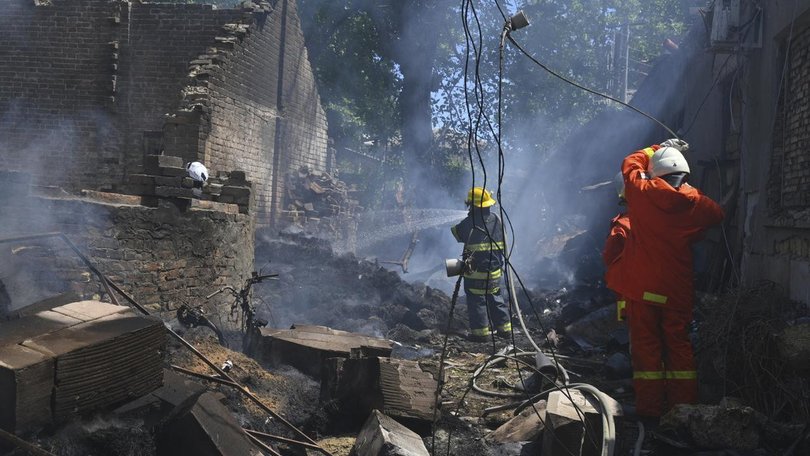EU targets Russia's energy revenue with new sanctions

The European Union has agreed to an 18th package of sanctions against Russia over its war in Ukraine, including measures aimed at dealing further blows to the Russian oil and energy industry.
The package aims to lower the G7’s price cap for buying Russian crude oil to $47.6 per barrel, diplomats told Reuters.
“The EU just approved one of its strongest sanctions packages against Russia to date,” EU foreign policy chief Kaja Kallas said on X.
Sign up to The Nightly's newsletters.
Get the first look at the digital newspaper, curated daily stories and breaking headlines delivered to your inbox.
By continuing you agree to our Terms and Privacy Policy.“We will keep raising the costs, so stopping the aggression becomes the only path forward for Moscow.”
Yet Russia has managed to sell most of its oil above the previous price cap as the current mechanism makes it unclear who must police its implementation, and traders doubt the new EU sanctions will significantly disrupt Russian oil trade.
The package also has a ban on transactions related to Russia’s Nord Stream gas pipelines under the Baltic Sea and on Russia’s financial sector.
Kallas said the sanctions also targeted 105 ships in Russia’s “shadow fleet”, the term used by Western officials for ships that Moscow uses to circumvent oil sanctions, and “Chinese banks that enable sanctions evasion”.
Ukrainian President Volodymyr Zelenskiy called the decision “essential and timely” as Russia intensifies its air war on Ukrainian cities and villages.
And Foreign Minister Andrii Sybiha said: “Depriving Russia of its oil revenues is critical for putting an end to its aggression.”
The Group of Seven Western economic powers have tried to impose a price cap on purchases of Russian oil price since December 2022.
It aims to ban trade in Russian crude bought at a higher price by prohibiting shipping, insurance and re-insurance companies from handling tankers carrying such crude.
The European Union and Britain have been pushing to lower the cap for the last two months after a fall in oil futures made the current level of $US60 a barrel largely irrelevant.
But the United States has resisted, leaving the EU to move forward on its own, but without real power to enforce the measure, analysts and oil traders say.
As the dollar dominates global oil transactions, and US financial institutions play the central role in clearing payments, the EU has no means to block trades by denying access to dollar clearing.
Agreement on the new EU package was held up for weeks as Slovakian Prime Minister Robert Fico demanded concessions on a separate plan to phase out EU dependence on Russian oil and gas.
Fico announced on Thursday night that he was ending his opposition.
Countries such as Greece, Cyprus and Malta had expressed concerns about the effect of the oil price cap on their shipping industries.
But Malta, the last of the trio to hold out, also came on board on Thursday.
